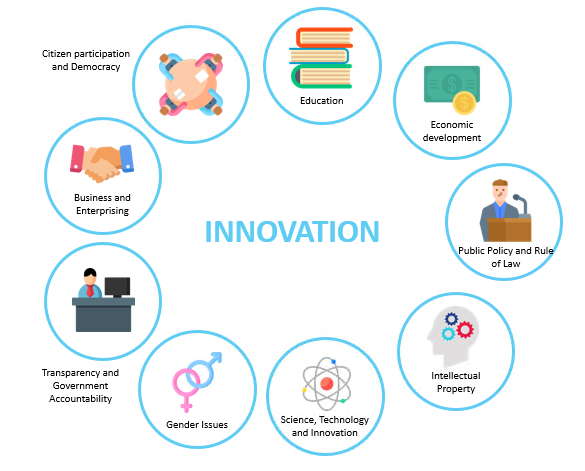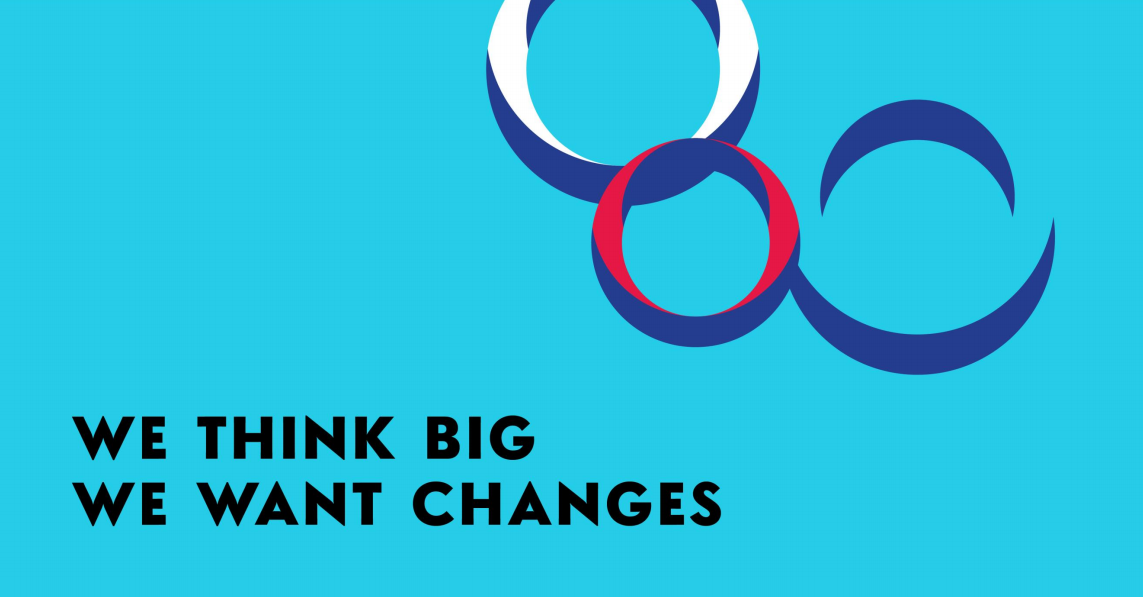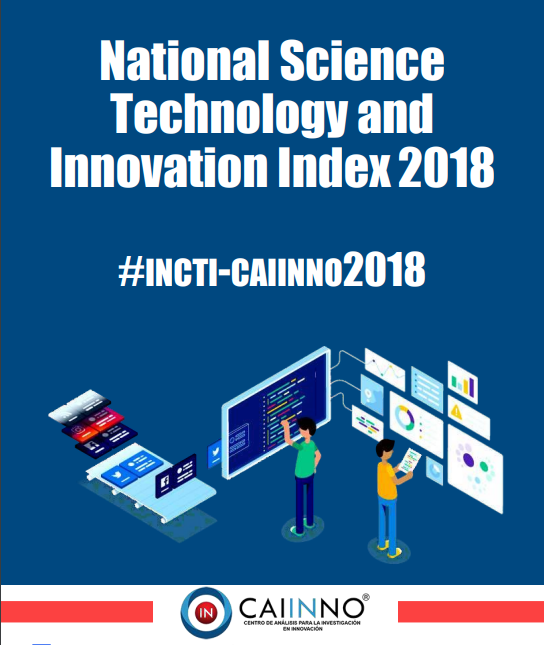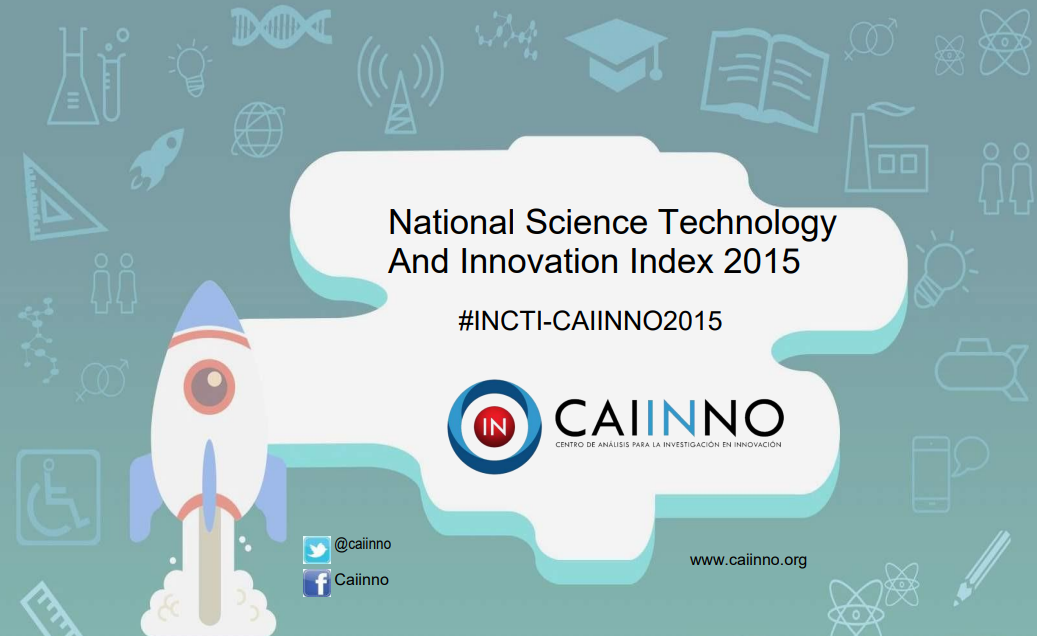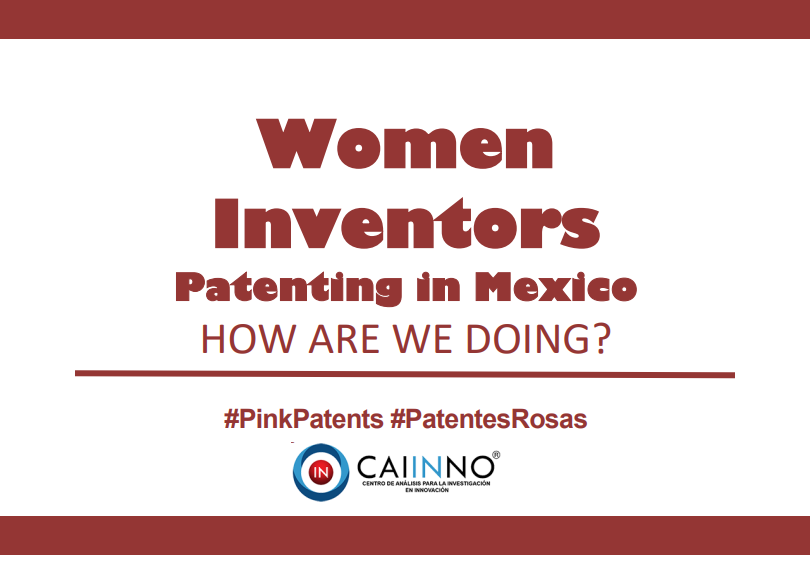Who we are?
What is CAIINNO?
The Centro de Análisis para la Investigación en Innovación, A.C. (CAIINNO), is a think tank established by individuals who finished their studies abroad with the Fulbright scholarship and decided to return to Mexico to bring about positive change in the country.
Our Objective
Its objective is to help resolve some of Mexico’s struggles through investigations, proposals, and projects that create a more innovative, transparent and inclusive country.
With innovation as the central axis, the organization adopts a transversal approach to generate impacts in the following 9 areas: (1) Science, technology, creativity, and innovation; (2) Intellectual property; (3) Gender; (4) Entrepreneurship and business; (5) Transparency; (6) Education; (7) Democracy and civic involvement; (8) Public policy and the rule of law; and (9) Economy and development.
Principles of Innovation
We have developed our own version, based on the Principles of Innovation proposed by United Nations Development Programme which include:
- Working on solutions with users.
- Understanding the ecosystem.
- Increasing impact through design.
- Building sustainability.
- Making the most of data.
- Using open standards, open data, open-source models and open innovation.
- Reusing and improving.
- Avoiding damage to the environment or to society.
- Seeking collaboration.
Our Impact
Our work has led us to receive national and international acclaim. For instance, we recently designed a project that was selected by the Inter-American Development Bank (IDB) during its call for ““proposals for Latin America’s and the Caribbean’s recovery from COVID-19””. Our proposal was the only one selected from Mexico and one of the 10 chosen worldwide from among the nearly 300 received by the IDB. The aim was to propose manners in which the knowledge and creative economy could help with the region’s recovery. The publication can be found here [link].
In 2020, the National Institute for Access to Information honored them us the “Award for Innovation and Best Practices in the Protection of Personal Data ”, on account of the development and implementation of an artificial intelligence. In 2017, the organization’s founders won the Alumni Engagement Innovation Fund– an international competition sponsored by the U.S. Department of State. Moreover, in 2023 the INAI honored us with a special mention in the Innovation Award.
In addition, CAIINNO has carried out activities and collaborations with Mexican and international agencies, such as the International Union for the Protection of New Varieties of Plants, the U.S. Patent and Trademark Office , the Latin American Integration Association, and the United Nations Development Program, among others.
Publications
- National Science, Technology, and Innovation Indexes. They have served as a reference point for the federal government and the design of development plans for states such as Puebla. Others include the academia, the private sector, and the Federal and State Congress. The first version is from 2015, while the second is from 2018. It has been used to evaluate- on a state level- the performance of CTI, as seen with Chiapas.
- Women inventors patenting in Mexico. The number of Mexican women that have solicited and obtained patents in Mexico on a subnational level was identified. It is the first study of its kind in the country and in Latin America. The first edition with data from 2014 to 2016 served as a reference to motivate a reform initiative of the Industrial Property Law, which sought to integrate into law the duty to design ad hoc policies to encourage women to participate in science, technology, and innovation. This investigation caught the attention of the World Bank, who then invited CAIINNO to their headquarters to present their results in their event of “Women, Business and the Law”. In regard to the second edition, data from 2017 to 2020 were considered. In addition, Yajaira Sierra-Sastre– manager of NASA’s Mars mission program- participated as a speaker. Finally, it motivated Senator Gina Cruz to present a similar initiative to the one previously mentioned. Although, in this case, it was applied to the new industrial property legislation, as well as complemented by another reform to the Law on Science and Technology.
- Skills for Innovation in Mexico. In collaboration with the British Council, this research was carried out to identify the skills sought by organizations wishing to innovate in Mexico. The results led to an interest on the part of Congress to take research as a reference and basis for reforming the Law of Science and Technology, in order to promote the development of skills in national innovation strategies.
Skills for innovation briefing
- Creative Economy. The performance of copyright-based industries in Mexico’s GDP was identified. Likewise, a database was designed that works with a big data visualizer on the performance of the creative and cultural industries in the country. We also launched documents that were taken up by institutions such as the United Nations Conference on Trade and Development. The former and other proposals served as a reference and motivation for the design and presentation of an initiative to reform the General Law on Culture and Cultural Rights, so that the law considers the cultural and creative industries.

- Green innovation, circular economy and gender. The first research was conducted in Mexico to identify the number of green patents by Mexicans at the national and subnational levels. By the same token, it was also possible to identify how many of these patents were invented by women. This is the first research of its kind in the country and in Latin America.
- Artificial intelligence, patents and gender. This research made it possible to identify the number of artificial intelligence patents invented by Mexicans at the national and state level. It was also the first research of its kind in Mexico and Latin America. In addition, it identified how many women inventors are behind this type of patents in the country.
- Women in ICT. A database was designed with a big data visualizer on women in ICT. This database was promoted in activities carried out by entities such as Idea ICT in activities to promote the participation of women in ICT at the national level.
- Informed vote. A platform designed for millennials that promotes civic education and information about candidates in elections. It was recognized by an INE Electoral Counselor as one of the two best in the country, together with the Informed Vote of the UNAM, which had a much higher budget.
- Science and Technology Electoral Observatory. Focused on identifying how CONACyT used the resources it received from electoral fines. This project resulted in an initiative to reform the electoral law.
- Entrepreneurship and gender in Mexico. This is an analysis and statistical calculation that shows the performance and participation of women in entrepreneurial activities in Mexico, specifically with information from the National Entrepreneur Institute. This research was referenced by the IDB for its first report on “Support programs for female entrepreneurship in the Pacific Alliance”.
Our Team
Esteban Santamaría
Esteban Santamaria is one of the founders and Director of the Mexican think tank CAIINNO which was founded by Fulbright alumni. Mr. Santamaria has experience in the public and private sectors, besides the academia. His field of work is mainly on intellectual property law, innovation and development at national and international level.
He earned his Law Degree and Master in Law and Economics by the University Autonomous of Puebla, and the LLM in Intellectual Property by The George Washington University, awarded with the Fulbright scholarship.
Everardo Díaz
Holds a PhD. in Political Science from the University of California, Santa Barbara (2014). His dissertation centered on the Mexican legislative system and how political parties use differentiated strategies to enforce party discipline. In a wider sense, his research explained how policy outcomes depending on legislative enacted are designed, negotiated and implemented. Other research interests include electoral campaigns and media coverage
As an entrepreneur, it is the co-founder and COO of Mural Tactil, a Mexican data and software company focused on cloud computing and data analysis solutions,
Holds a M.A. in Political Analysis and Mass Media (2004), and a B.A. in Political Science (2003), both from the Instituto Tecnológico y de Estudios Superiores de Monterrey.
María Dolores Ballesteros Páez
Holds a PhD. in Social Sciences from the Instituto Tecnológico y de Estudios Superiores de Monterrey (2014). Her dissertation was focused on the Mexican educational system and how national policies affect the substantive contents of textbooks at the secondary level.
Received training in qualitative and quantitative methods to analyse social reality, specifically, to study national identity construction in the production of history textbooks and how new educational focuses such as multiculturalism were incorporated in the Mexican secondary education system from 1993 to 2012. Specialised in Bourdeau’s theory of the fields to study the interaction of the actors involved in curricula production, in content analysis of the textbook images, and in discourse analysis of the textbooks focusing on their representation of multiculturalism, gender. Holds a M.A. in Latin American History from the Instituto Mora in Mexico City (2010), and a B.A. in English and Linguistics from the University of Alcala in Spain (2008). Conducted postdoctoral research at the Center for Latin American Studies, National Autonomous University of Mexico (UNAM), 2014-2016.
Fernando Ojesto Martínez Manzur
Masters in Law (LL.M.) from Columbia Law School in the City of New York, Fulbright García Robles Alumni, Law Degree with honors from the National Autonomous University of Mexico (UNAM). Juris Science Doctor candidate from UNAM. He has published more than a dozen of essays and articles in law reviews and specialized books related to democracy and electoral matters. Law Professor at the School of Law of UNAM.
He has served as Project Coordinator at the United Nations Development Programme (UNDP), as well as in various positions at the Electoral Court of the Federal Judiciary of Mexico. At the International level he has being legal adviser at the Permanent Mexican Mission to the United Nations, and consultant at the International Center for Transitional Justice (ICTJ), Organization of American States (OAS), National Democratic Institute, UN Women, Netherlands Institute for Multiparty Democracy (NIMD) and the Inter-American Institute of Human Rights (IIHR).
He is a member of CAIINNO since 2014 and has collaborated in various projects related to democracy, Political Rights and civic education.
Carlos Arturo Castro del Ángel
Economist from the Autonomous University of the State of Hidalgo with an emphasis on Technological and Industrial Development. I currently work as head of economic research for the Center for Analysis for Research in Innovation. He has a certification in data science from the International Institute of Data Science and several courses on machine learning, predictive models and public health.
In this area, he has collaborated in research on intellectual property, creative economy, civic education and the impacts of innovation in Mexico. He has participated in projects such as monitoring the effective application of fares in public transport, models to predict the level of risk in sectors such as health and finance, as well as reporting the daily progress of the coronavirus in the country. At the same time, it has courses and presentations on topics such as digital health, urban mobility, software development and entrepreneurship.

